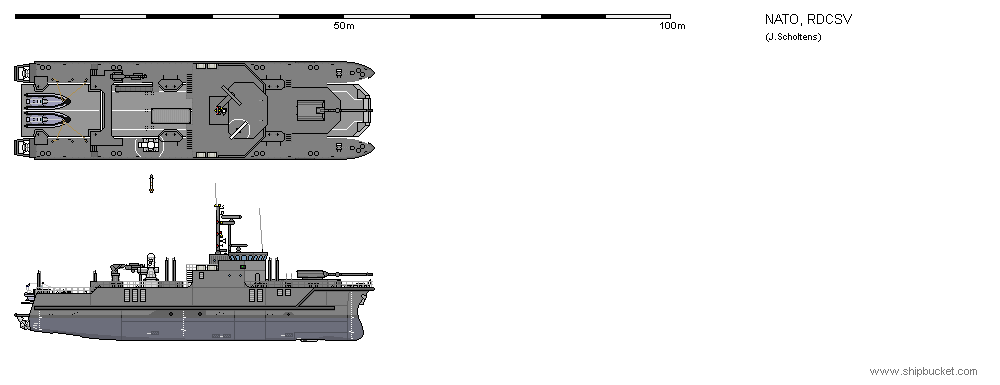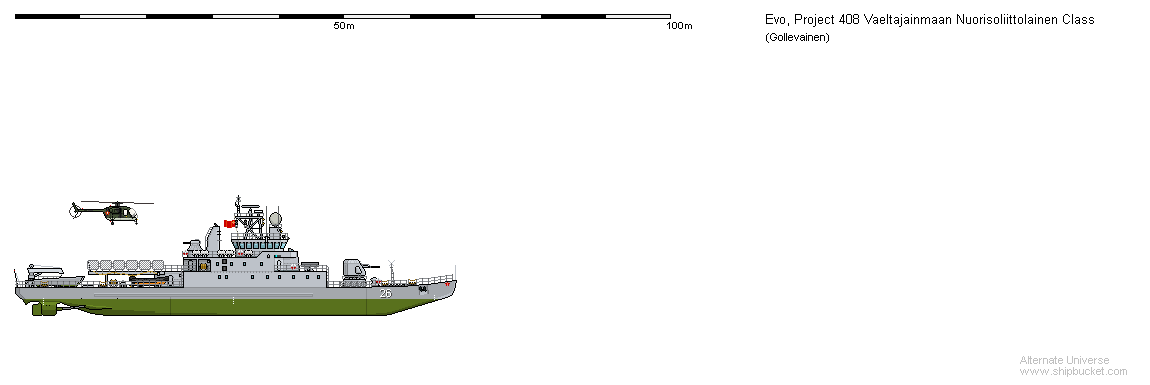
Originally it was going to be three BMP-1s in a trenchcoat, but when I designed my IFV it ended up being a bit long, so its just two of them sharing the trenchcoat.
The Dubbelkloek is an attempt by the Batavian Armies to produce a versatile and mobile patrol vehicle to project firepower on areas with little infrastructure or numerous waterways. It consists of one or two m/67 Kloek IFVs attached to a displacement body made up of pontoon floats, and a propeller transmission aft, powered by one or both Kloeks through a direct shaft coupling to the AFVs transmissions. This reduces the fuel consumption when only one vehicle is powering the combination vessel, increases maximum speed in the water from 4.3kn to 8kn, and raises the waterline by a few cm to increase seakeeping. The pontoons are attached by explosive bolts, which can be fired from either vehicle to quickly detach them once aground and permit the IFVs to maneuver independently. Each component vehicle is armed with an 84mm low pressure smoothbore gun and a 25mm autocannon in the main turret, and two 8mm machineguns on smaller subturrets, plus anything the 11 man infantry squad carries with them. The infantry can use the IFVs six firing ports or open up the top hatches to engage the enemy. These vessels were used exclusively by the Netherlands, African and East Asian Armies, the Navy finding the whole contraption a ridiculous chimaera, sticking with their Landing Craft gunboats and dedicated vessels for fluvial patrol.









